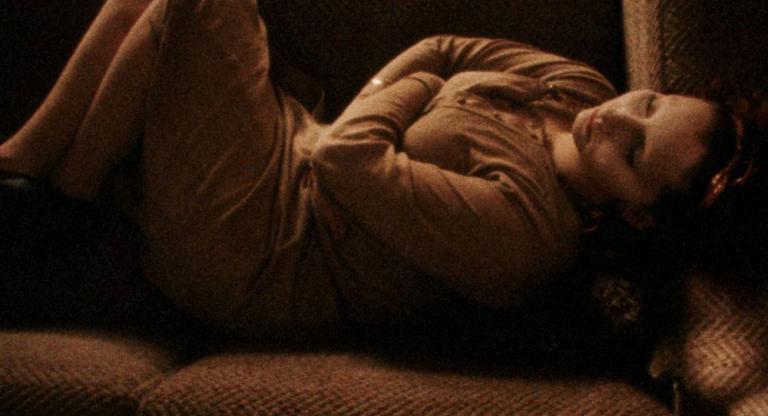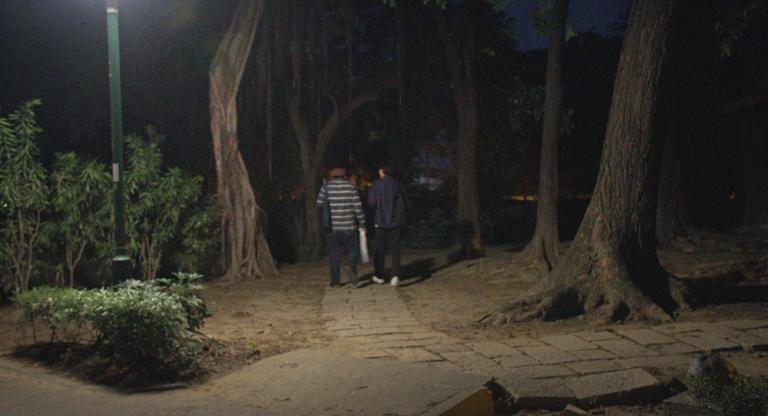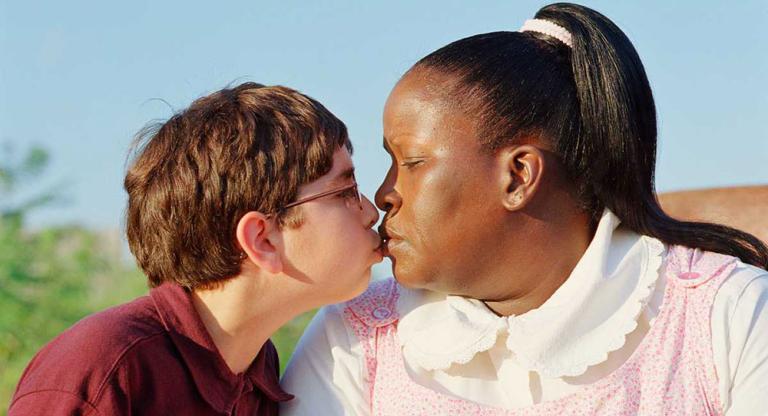Despite achieving first cult status and then wider recognition in Japan for over three decades of work in film, television, and theater, director Yukihiko Tsutsumi never really crossed over to the United States. Keeping with both his and their idiosyncrasies, Spectacle has foregone highlighting one of his many popular series or sequels, screening instead an obscure feature, 2002 horror oddity EGG.
In the little information available on the film (and testament to the difficulty of translating idioms), EGG is repeatedly described as a ‘phantom picture’. It premiered at the 2002 Tokyo Fantastic Film Festival, then disappeared entirely until a brief two-week theatrical run in 2005. In an interview kicking off that run, Tsutsumi suggests the entire film was thrown together at the last minute: “In the first place, the project that was supposed to be filmed disappeared, and the staff had no work, so this work was made with the idea that was there. I was given the chance.”
EGG originally screened alongside 2DLK (also 2002), Tsutsumi’s half of The Duel Project, a challenge lobbed at director Ryuhei Kitamura: make a feature with minimal cast, single setting, and one death, and shoot it in one week. At the time of the challenge, Tsutsumi was 14 years Kitamura’s senior and better established. But it was Kitamura who cracked U.S. awareness with his 2000 cult film Versus. Tsutsumi got a jump start on the duel, announcing to Kitamura he’d already written and was shooting his tale of two actress roommates waiting in their two-bedroom apartment to hear back about the same role. Kitamura scrambled to complete Aragami, a wounded samurai vs. war goblin gorefest set in a Buddhist temple. TFFF’s audience determined the winner; allegedly 2LDK won by a single vote.
Tsutsumi split his career between cult hits like Chinese Dinner (2001)—whose self-imosed constraints inspired The Duel Project —and big-budget TV films like Black Jack (2000), based on the popular Osamu Tezuka manga. 2LDK has EGG’s mix of brutality and black comedy, but is widely known and available. Yet as is the case with many genre films, it’s what flies under the radar that gets away with saying more.
Despite some success, Tsutsumi was a relative outsider to his industry struggling to find footing. He’d dropped out of college and followed his dad into construction, but in his words “soon broke my body.” While recuperating, he caught an ad for a vocational media school, and began his early career as an underpaid AD harangued for being a “telegraph pole” (another translation-defying idiom). In the late ’80s and early ’90s, he collaborated with Japanese punk and rock bands on music videos, moved to New York and worked with Yoko Ono, yet he didn’t hit his stride until the 1995 TV series Kindaichi Case Files. Later, he spent several years getting a geography degree, maintaining that “geography and my directing are very deeply interconnected”.
While 2LDK has a Japanese city girl/country girl face-off, EGG follows Korean twenty-something Tsukiko, living in Japan, equally out of place among zany punk friends and dour older coworkers. Her name, literally “moon child,” sounds like a portmanteau of Tsutsumi Yukihiko. A rich inner vision (for Tsukiko, of a cobalt egg in a blood-red sea) suddenly cracks, throwing life out of balance. Authority is no help, whether doctors, cops, or for Tsutsumi, a post-bubble film economy.
Part of the fun of watching EGG is realizing along with Tsukiko what’s unfolding, and at barely an hour it’s worth your while to go in blind. Not that the plot or ending rise above the average Are You Afraid Of The Dark? episode, but this lesser, one might say cornier, effort from Tsutsumi still showcases his strengths. In inferior hands the misadventures of a young woman reacting to her mind’s eye might feel repetitive, grating, or cheap. EGG was a collaboration with visual artist Daizaburo Harada (himself a frequent collaborator with the late Ryuichi Sakamoto), and Harada’s confident emphasis of CGI’s artificiality makes graphic limitations a strength instead of weakness. Though toward the end it gets to be a bit much, Tsutsumi’s kinetic framing and cutting keep things lively, with the mid-aughts teal-hued aesthetics balanced by rich jewel tones and excellent practical creature design.
It feels appropriate that though 2LDK got the Philadelphia Film Fest award and Variety write-up, it’s Tsutsumi’s phantom film about conceivably ugly, occasionally damaging visions made abruptly flesh that’s screening stateside.



